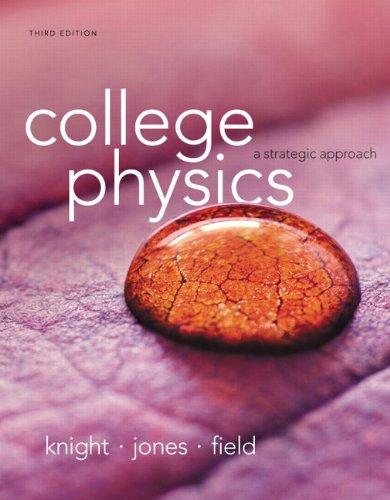If two identical conducting spheres are in contact, any excess charge will be evenly distributed between the
Question:
If two identical conducting spheres are in contact, any excess charge will be evenly distributed between the two. Three identical metal spheres are labeled A, B, and C. Initially, A has charge \(q\), \(\mathrm{B}\) has charge \(-q / 2\), and \(\mathrm{C}\) is uncharged.
a. What is the final charge on each sphere if \(\mathrm{C}\) is touched to \(\mathrm{B}\), removed, and then touched to \(\mathrm{A}\) ?
b. Starting again from the initial conditions, what is the charge on each sphere if C is touched to A, removed, and then touched to B?
Fantastic news! We've Found the answer you've been seeking!
Step by Step Answer:
Related Book For 

College Physics A Strategic Approach
ISBN: 9780321907240
3rd Edition
Authors: Randall D. Knight, Brian Jones, Stuart Field
Question Posted:





